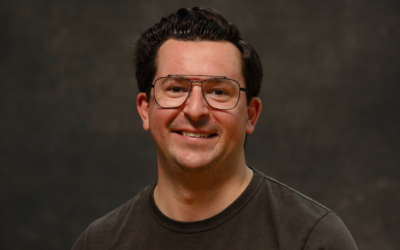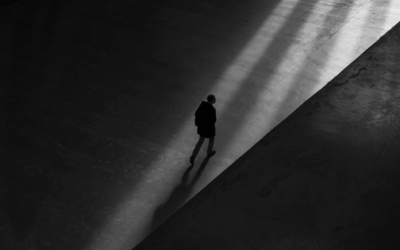I have been working as a professional photographer for about 30 years now, and a lot has changed since I started. Back then, there was no internet. Hard to imagine that nowadays. How did you market yourself? Folks like John Shaw and Galen Rowell wrote for Outdoor Photographer Magazine. They and a few others became famous and became folks I looked up to. There were no websites, no blogs, no podcasts, no online classes, and no email blasts. It was tough, but like everything else, we managed to adapt. Then along came the internet and digital photography. The learning curve became much quicker, and the vast number of photographers, workshops, tours, etc., expanded.
I began my creative life as a musician in and around New York City. You better play well, or else you did not get the call. Much applies the same way in photography. Unfortunately, these days so many folks fall into the trap of wanting to become famous that their quest for excellence is often derailed. Every day I work harder to become better in what I do. I don’t ever think I will reach the level I aspire to be, and it is ok. I love my job, which makes it all good.
I always tell my students, get good, and you will be found. Don’t worry about getting famous and wealthy. Just get good, and you will have a chance. There are a few things I have figured out along the way. Allow me to share some of these with you, and hopefully, my thoughts might resonate and help you on your path.

You Have To Love It
Something that has helped me in everything I have managed to accomplish so far and has helped me in my career(s) is that I have always had a passion for my work. I am totally in love and committed to what I do now, just as I was early on. I get to collaborate with other photographers, some at the top of the craft and a lot better than me, and I get to hang out with them. What’s not to love?
If you don’t have a real passion for what you do, you should probably take up something else. You don’t make any money when you start, and the hours are crazy. Most of your friends are other folks in the business because, other than your customers, you rarely see anyone else. I cannot tell you how often I was asked to go to a ball game, have guests over, or go out with my wife, and had to decline because I was working. It was a tough thing to do, but I am not complaining.
Out on workshops or assignments, I always enjoyed being there, with attendees or sometimes by myself. We would regularly talk about photography and chat, amongst other things. I have become personal friends with many of them and still hang out today. It is good to learn from others, not just from YouTube and Google.
Confidence
When I was young, either in music or photography, I never grew tired of looking for new things or new ways to apply ideas. I always strived to get things right, even at a location I did not care much for, on a job I disliked, or with indifferent people; sometimes I was successful, and sometimes I was not. Whatever it was, I would be there focused on the goal.
I learned some of this attitude from my mentors. These influential people were good at their craft. It always amazed me how almost everyone liked them and how they had so many friends. You have confidence when you know how good you are at something and know you can do it well. Again, get good, and confidence will follow.
Now, the more challenging the experience, the happier I am. You better have the confidence and know-how to do it, or you will find yourself in trouble.
It is true; the more you do something, the more confident you become. I learned this at an early stage in life. When I was at Indiana University, I had to play a recital for the brass faculty, some famous folks there. I walked out on stage and said “Hi” to them, and you we not supposed to do that. They wanted you to look serious, sweating, and nervous! I nodded to the pianist, and he began to play the piece, and I played my tail off! I received an A+. However, every faculty member noted that I needed to be more serious on their critique forms. More serious? Were they crazy? I was serious. However, unlike most other students, I had already played before a large crowd, making money as a musician. I knew what I was playing. I knew I could nail it, and I did. They perceived this as not being serious. They wanted me to be nervous, sweating it out. It was a breeze for me. I knew the music; I knew I could nail it. It annoyed them, but I thought it was funny. I stood up straight, held my head up, and did it.

Respect
Unlike Rodney Dangerfield, for whatever reason, I get a lot of respect. How did that happen? For one thing, I am always prepared for what I must do. I am dependable, and people know they can count on me. I am usually early for work and people like that. Which ultimately inspires confidence.
I also learned about managing people from other well-known photographers and workshop leaders. It is ok to have fun, and those who know me, know I have a lot of fun, but I never let things get too out of hand. If you don’t do what you are paid for, you are stealing. I got that sensibility from my mentors.
Becoming friends, of course, helps with the relationships you form. When we are done for the day, we often spend time and have a meal together. It is always fun to run into other photographers I know on the road, grab some time together, tell stories, and share a few laughs.
Sometimes, I had seen it happen when clients took over a workshop because the leader was not delivering the goods as they should. This can be very humiliating for the leader.
It is important to establish respect, and some do it in diverse ways. No two photographers I have ever met are the same. They need to know how to get the best from their clients or even themselves. Everyone has their own style and their way to make it work. I have learned from all of them.

Motivation and Work Ethic
My work ethic came from my early trumpet teacher in New Jersey. He taught me to always be ready and always be prepared. He also stressed strongly about taking care of your equipment and ensuring everything works correctly before you need it. Your work does not start when the event commences; it starts well before. I am always thinking about how I will go about things, days, sometimes weeks before the start. I always strive to over inform my clients before the event.
This comes from what I learned as a young musician. I was taught to treat everyone the same way you want to be treated. I often hear many other workshop leaders barking at groups and sometimes making condescending comments. I never want to be like that.
Integrity
To me, integrity is when you say you will do something, and you do it. When you give your word, you must stand by it. It is one of the most essential things in life.
It is part of me wanting people to think I am a nice guy, and it is. I care that people like me.
Efficiency
I try to be efficient. I always try and deliver the message that I am here to do what I came for. Another thing is that I am rarely late. I have missed two wake-up calls in almost 30 years of workshops when my alarm was not set right. Fortunately, my co-leader was able to get everyone going. I got there a few minutes late. My panic was terrible; thinking I was letting my group down. Since then, I have been extra cautious about getting to where I need to be early, all the time.

Reinvention
Every project is different, and I let it dictate my direction. I have always tried to challenge myself by taking on diverse locations and projects.
I am always learning, and I don’t think there is any such thing as a perfect photograph or even a perfect workshop. I don’t believe I have ever done a project, played a job in the music business, made an image, or conducted a photo workshop that I was 100% happy with. But I don’t know too many successful photographers, musicians, or workshop leaders that would say they have either.
Keep Your Clients Happy
Sometimes, it is ok to ask your clients when you are unsure where to place your tripod. They may tell you, “Maybe let us try the setup over there,” and it may have worked out great. Don’t be afraid to ask. You can try it and make suggestions as you go, walk over the layout, and look to make sure it will work for you.
You always want your clients to feel good and know that you care about how they are feeling. It is common sense. If they are happy, they will enjoy their time with you and have better results. I tell folks new to the business that your clients are your best friends in this field.
Finally
There are more things I will learn in the future, but I hope these few ideas, different from recommending gear or technique, might help make a difference. These did and still do for me.






